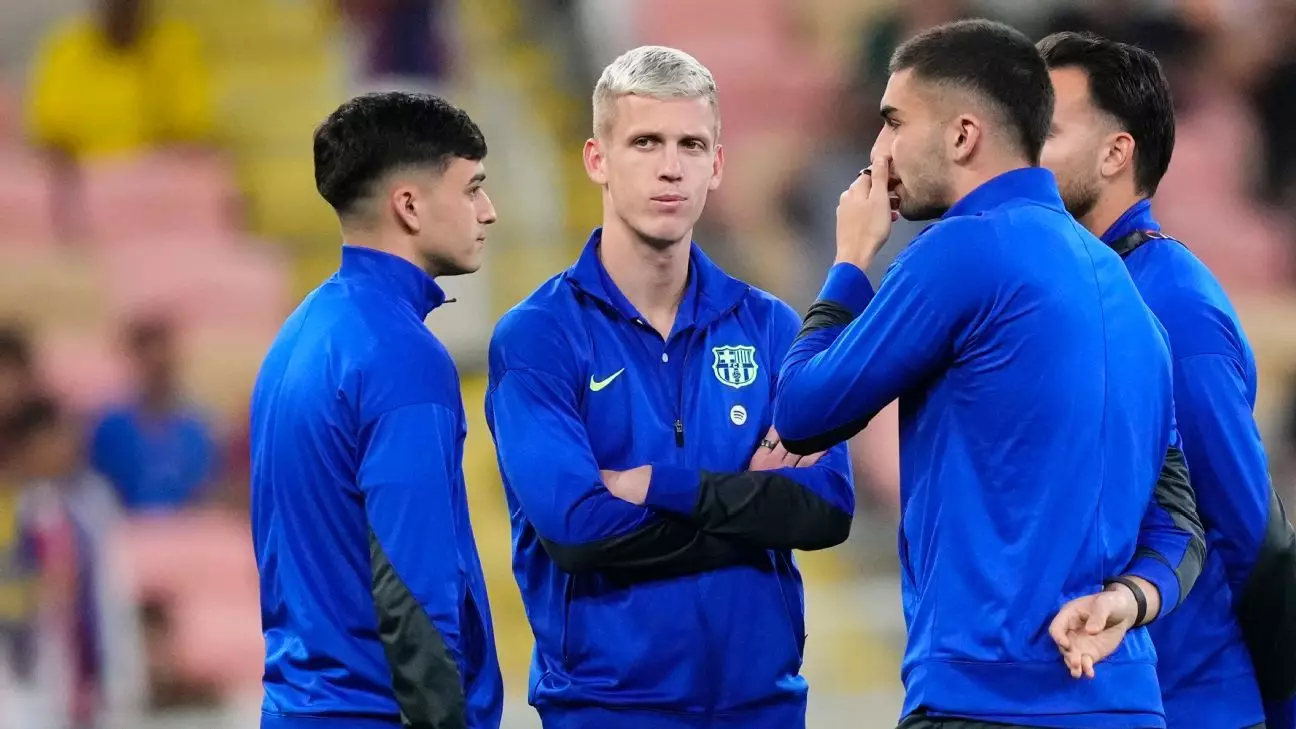The football world has recently been embroiled in controversy as FC Barcelona faces criticism in the wake of a temporary ruling allowing players Dani Olmo and Pau Víctor to participate in matches, despite earlier denials of their registrations by LaLiga and the Royal Spanish Football Federation (RFEF). This decision, rendered by Spain’s Sports Council (CSD), has sparked discussions about the integrity of financial regulations in Spanish football, highlighting a rift not only among clubs but also among governing bodies.
At the heart of this issue lies Barcelona’s apparent failure to meet financial fair play (FFP) compliance before the December 31 deadline. This misstep led to the club being barred from registering new players, a situation that left many questioning the sustainability of their financial practices. However, the recent CSD ruling temporarily permits Olmo and Víctor to take the field, pending further deliberation. The approval has ignited fierce criticism from Athletic Club, which feels that the integrity of competition is being undermined.
Athletic Club president Jon Uriarte described the CSD’s ruling as “grotesque,” highlighting his disappointment towards the perceived inconsistency and lack of accountability within the Spanish football structure. His vehement reaction, especially around the timing of the ruling amidst financial strains clubs face, underscores a sentiment of unfairness that many clubs may resonate with.
Barcelona’s response, spearheaded by sporting director Deco, was one of defensiveness. Deco emphasized that all clubs encounter their respective challenges and should focus on their operations. He stated that the decision to allow the players to register reflects a deliberate judgment by authorities. Here, Deco’s comments signal an attempt to redirect the narrative away from the controversy while subtly reminding critics that Barcelona is still navigating its internal affairs.
From the players‘ side, Athletic forward Iñaki Williams aired concerns about the potential damage this saga could do to the reputation of Spanish football. Williams articulated a sentiment felt by many players who strive for a level playing field, remarking that inconsistent application of rules could tarnish the sport’s image. His comments reveal a growing frustration among players who feel the repercussions of such controversies extend beyond mere administrative matters; they ultimately affect the competitive landscape of the league.
LaLiga president Javier Tebas also weighed in on the debacle, expressing astonishment at the CSD’s ruling. His comments reveal a tension between football’s governing bodies, questioning the rationale behind the provisional measure and seeking clarity on who holds authority within the framework of football governance. Tebas’s critique of Real Madrid TV’s silence adds another layer to the narrative, suggesting an unspoken divide within professional football stakeholders.
The conflicts raised in this scenario invite inquiries about the effectiveness of governance in Spanish football. With multiple entities seemingly at odds, it paints a picture of a sport battling to maintain its reputation while adhering to the stringent regulations that govern financial practices. The question remains: how can clubs remain compliant while remaining competitive?
This controversy extends beyond the individuals and clubs directly involved; it touches on broader implications for Spanish football as a whole. The perceived inconsistency in rule enforcement and the differing treatment of clubs can lead to a loss of faith among fans, sponsors, and potentially hinder the league’s growth on an international scale.
As clubs like Athletic Club voice their concerns, it serves as a reminder that transparency, consistency, and fair governance are crucial for football’s integrity. If disputes like this go unresolved, they risk further splintering relationships among clubs and eroding the mutual respect necessary for a healthy competitive environment.
As the football community awaits a definitive ruling regarding Olmo and Víctor’s registration, the discussions prompted by this controversy beg for a deeper evaluation of how Spanish football can foster an environment that aligns with both competitive spirit and fair play. The road ahead may not be simple, but listening to the voices across the league is a vital step toward ensuring that the game holds its values above all.


Napsat komentář